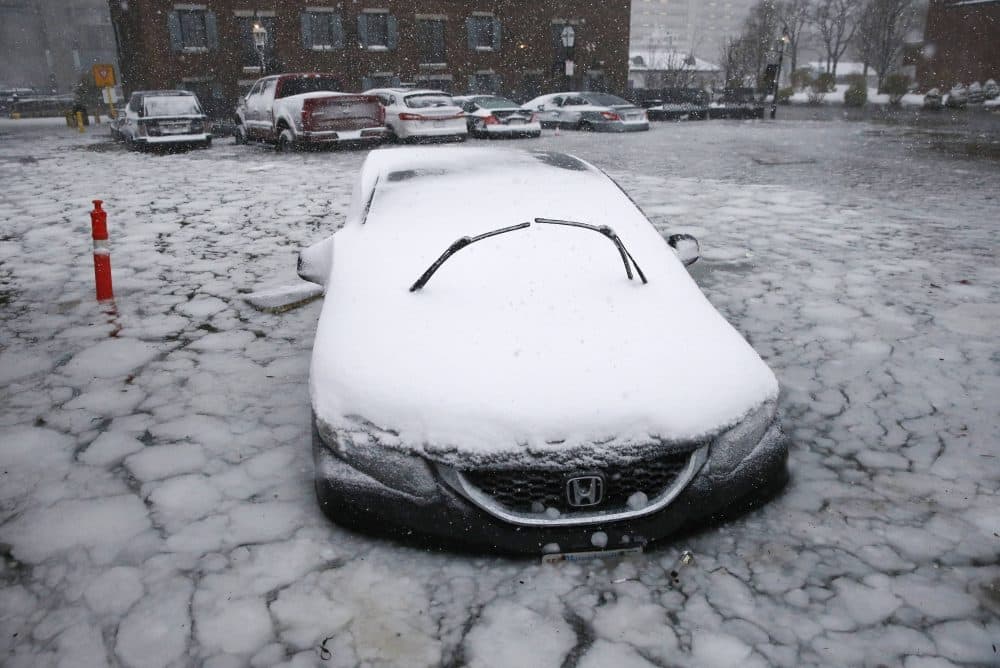Advertisement
Report: Boston Saw Record High-Tide Flooding Last Year

High-tide flooding is happening across the United States at twice the rate it was just 30 years ago, a new report that tracked flooding from May 2017 to April finds. Boston, the study shows, is one of the locations that saw record instances of high-tide flooding over the time period.
The National Oceanic and Atmospheric Administration said Wednesday that high-tide flooding, sometimes called sunny-day or "nuisance flooding," tied or set records in more than a quarter of the 98 places the agency monitors around the country.
The report found Sabine Pass in Texas had 23 days of high-tide flooding over the May-to-April time period, while Atlantic City in New Jersey and Boston had 22 each. Cities in other parts of the country experienced fewer tidal floods, but many of those cities still saw records set.
"Though year-to-year and regional variability exist, the underlying trend is quite clear: Due to sea level rise, the national average frequency of high-tide flooding is double what it was 30 years ago," the report said.
Ben Horton, a Rutgers University researcher who was not involved in the study, called it "a warning, a shot across the bow."
"Across the whole of the U.S. coastline, we are in dire need of action," he said.
As sea levels rise, coastal communities around the U.S. are experiencing flooding that closes roads or inconveniences daily activities on an increasing basis.
"What used to be uncommon is now becoming fairly common," said William Sweet, a NOAA oceanographer and co-author of the report.
He said global sea levels are rising at a rate of about 3 millimeters a year, or about an inch every eight years.
The report added: "Breaking of annual flood records is to be expected next year and for decades to come as sea levels rise, and likely at an accelerated rate."
Sea levels in Boston have risen nearly a foot in a century. One projection has them rising about 1.5 feet by 2050, when compared with a 1992 baseline.
The NOAA report mentioned Boston's early January nor'easter, when the storm combined with astronomically high tides to produce historically high water levels.
Anticipated weather conditions this year and next may result in even higher than expected flood frequencies along the east and west coasts.
With reporting by The Associated Press' Wayne Parry and WBUR's Ben Swasey